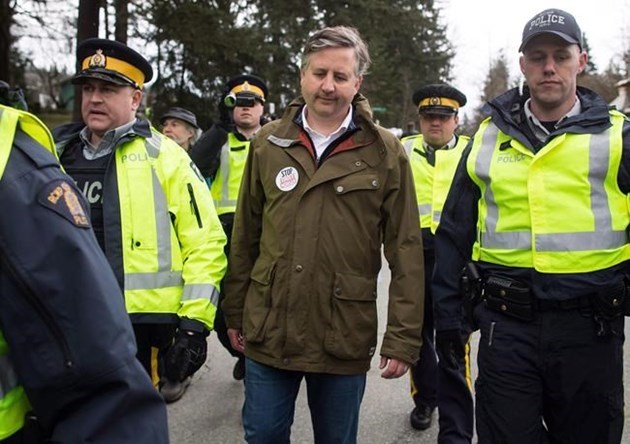VANCOUVER — As election campaigns kick off across British Columbia its largest city is facing a race unlike any other, experts say.
A proliferation of new parties and independent candidates are crowding the Vancouver race in a widespread turnover of the existing council.
"It's really weird, it's not common to anything I've ever seen," said David Moscrop, a political scientist in the department of communications at the University of Ottawa who recently left British Columbia.
The city's political system is already unusual in Canada. It operates under a party system and voters elect council members at-large because Vancouver hasn't had wards since the 1930s.
Since 2008, centre-left Vision Vancouver has dominated council under Mayor Gregor Robertson, who is not running again. Before that, the centre-right Non-Partisan Association had the longest ruling legacy with some notable exceptions, including 2002 when the Coalition of Progressive Electors won the mayor's office and eight of 10 council seats.
This year, newcomers who considered throwing their names in the hat are looking at a rare opportunity. Only four incumbent councillors are running and among them, only one is returning from Vision Vancouver. The party also saw its mayoral candidate, Ian Campbell, bow out just one week before the nomination deadline.
"To have the, I wouldn't say collapse, but have the entrenchment of a major party, and then that space filled by a ton of new independent candidates in a party system is unusual and remarkable," Moscrop said.
"But it's also a reminder that in politics when there's a space that emerges to be filled, it gets filled."
The result leaves voters in the city of Vancouver to choose between 21 mayoral and 71 council candidates vying for the mayor's job and 10 council seats. Eleven parties are running candidates.
Moscrop predicted the election will largely be fought on a single issue: housing.
"There's different parties with different approaches to fixing it that on first glance don't break down on ideological lines of left-right as much as they do on density, non-density, how they want to do transportation inside development projects. That's all substantive and encouraging," Moscrop said.
Hamish Telford, a political scientist at the University of the Fraser Valley, said new campaign finance rules are likely part of the reason so many new parties and candidates entered the race. They prohibit corporate and union donations and limit individual contributions to $1,200.
Under the old system, he said candidates with name recognition or established political parties tended to soak up available donations, making it difficult for newcomers to break in.
"What we're seeing at least this time around is a proliferation of parties, a proliferation of candidates because they don't need as many resources to compete against the established candidates and parties," he said.
The turnover extends beyond the city. Only eight of the 21 mayors in the municipalities that make up Metro Vancouver are running again.
Patrick Smith, a political science and urban systems professor at Simon Fraser University, said it's not clear why so many incumbents in the region have declined another run. But it could have something to do with the new campaign spending rules and the extension of municipal terms to four years from three.
While the shift in campaign spending was heralded as a way to get 'big money' out of politics, Smith said it could have the unintended consequence of lowering voter turnout. It means all candidates have less opportunity to get their messages out, he said.
"If you're an elector and you're looking at 11 different party groups and 71 candidates for council you might just decide to stay home and watch a baseball game," he said.
This race may also be less predictable than others, with the introduction of so many new parties and the low number of incumbents running.
"Since we don't have wards, we do have parties. That helps people organize their thoughts," he said.
"And if you go back just one election, the best predictor of who got elected civically not just in Vancouver but in B.C. is incumbency. And that's thrown out the window this time," Smith said.
Former NDP MP Kennedy Stewart is considered among the frontrunners for the mayor's seat in Vancouver. If he is elected, he would be the first independent mayor since Mike Harcourt in 1980. Other challengers for mayor in the city are Ken Sim of the Non-Partisan Association, independent candidate Shauna Sylvester, former Conservative MP Wai Young of Coalition Vancouver and Hector Bremner of YES Vancouver.
— Amy Smart, The Canadian Press



